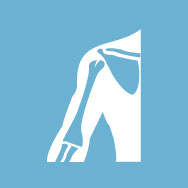
Arthroscopic stabilisation is a procedure to repair the damaged stabilising structures of the ball and socket (glenohumeral) joint of the shoulder. The procedure is performed as keyhole surgery which allows excellent visualisation of the extent of the damage and allows all parts of the shoulder to be addressed. The most common structure to be repaired is the torn labrum, which is the fibrous ring that surrounds the shoulder socket.
Other procedures may be performed at the same time, to help improve the stability of the shoulder. These include tightening of the capsule sleeve that surrounds the shoulder (capsular plication) and moving the surrounding tendon into defects in the ball-shaped humeral head (remplissage).
After arthroscopic stabilisation surgery, most patients go home the following day. Your shoulder will be in a sling after the procedure and you will be referred to a physiotherapist. In order to avoid causing damage to the repaired structures, it will be necessary to restrict how much you move your shoulder until these structures have healed. After that, you’ll need continued physiotherapy to retrain the muscles around the shoulder that help to keep it stable.
Arthroscopic stabilisation is used to manage most cases of recurrent shoulder instability, but there are certain situations where the procedure is not appropriate. In these cases, other procedures such as Open Shoulder Stabilisation may be required.
Shoulder instability is a complicated problem and there are many factors that must be considered to determine the ideal treatment for a patient. At the Melbourne Shoulder and Elbow Centre, our surgeons are experts in the management of shoulder instability. They will assess your shoulder and advise you on the best procedure to manage your unstable shoulder.
For more information on arthroscopic shoulder stabilisation, we recommend contacting our surgeons for an initial consultation.